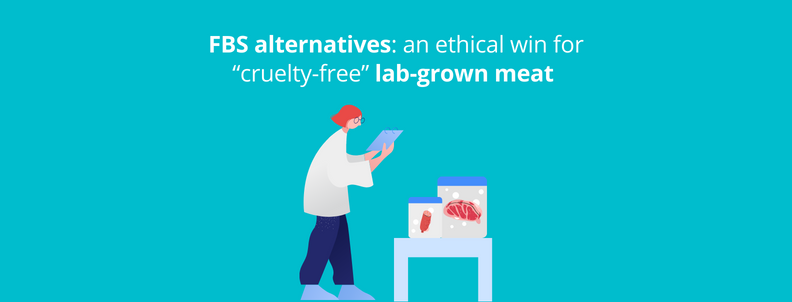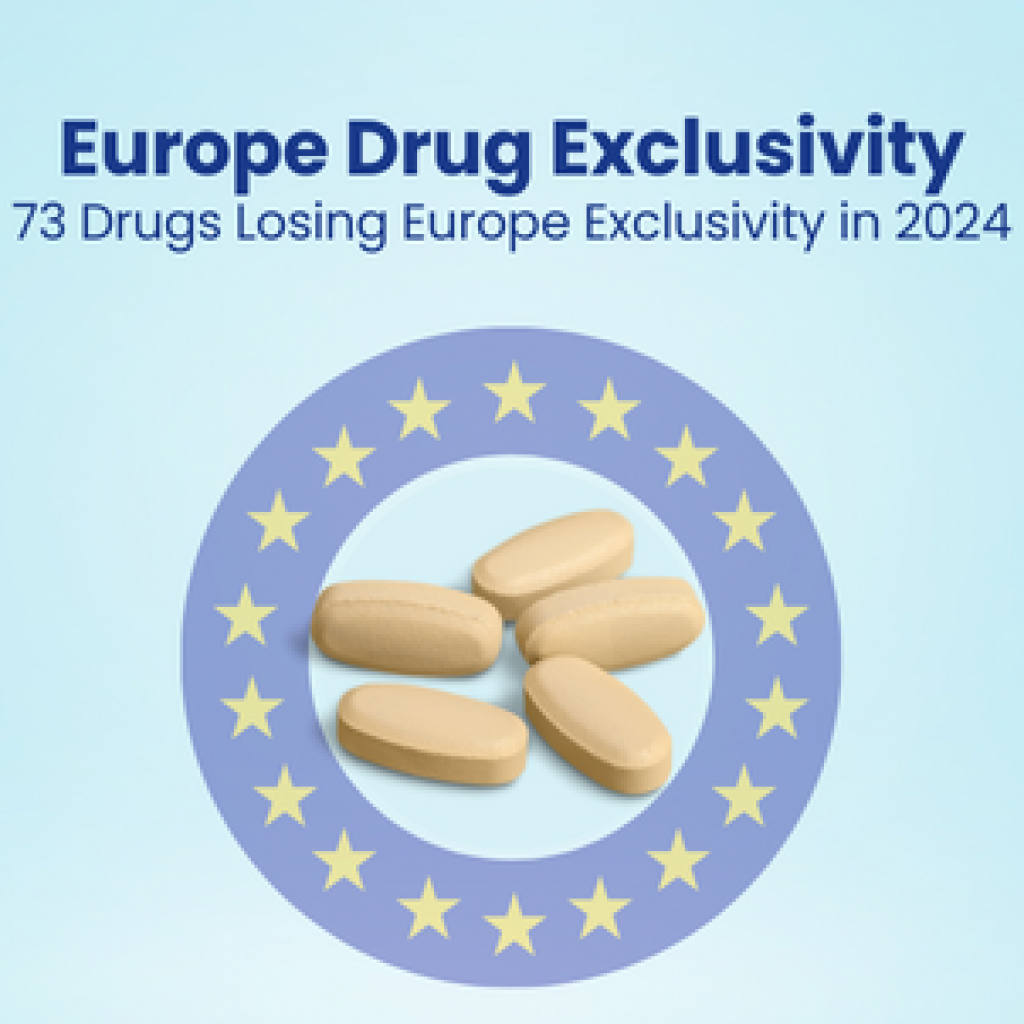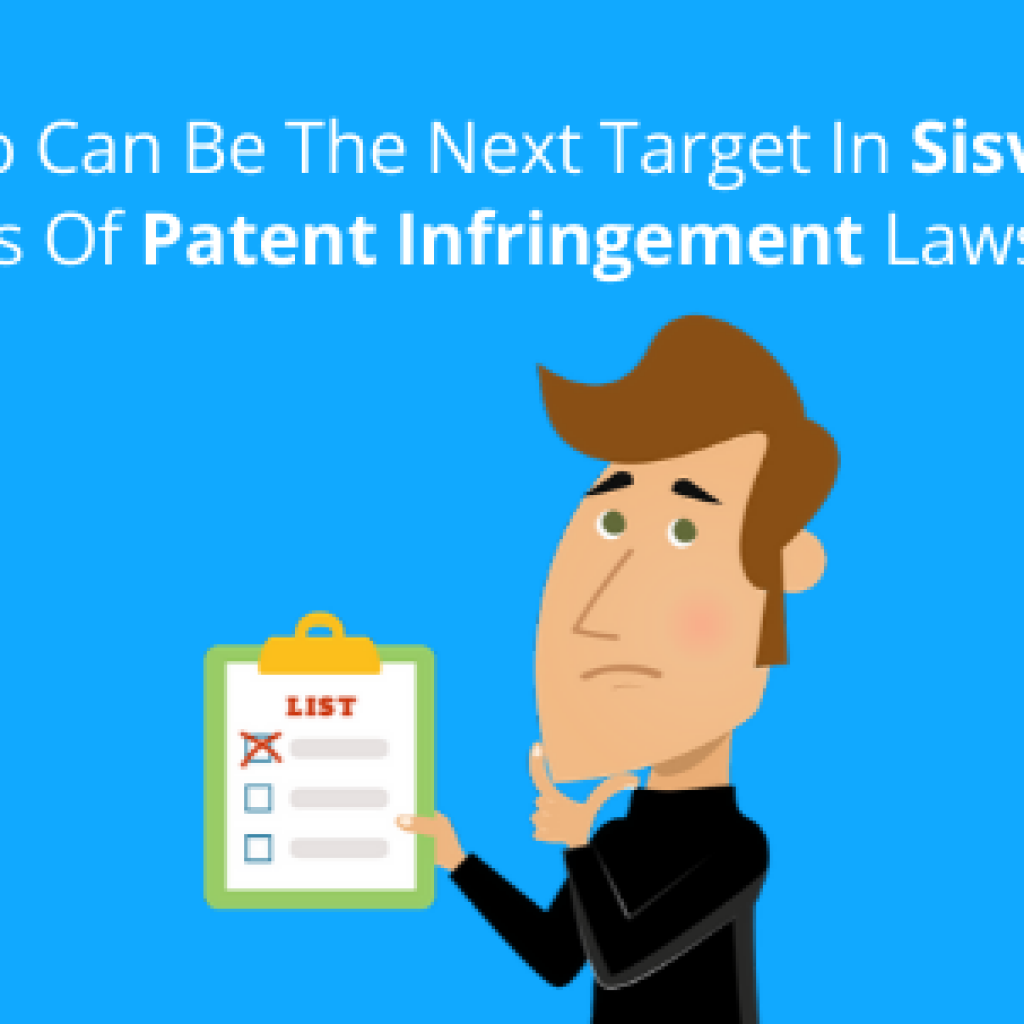In the face of a meat-hungry world, lab-grown meat has gained popularity as an alternative to the cruelty of factory farming. But “cruelty-free” is a big claim; as it turns out, the reality is slightly different. Many lab-grown meat products contain a shocking amount of blood. More specifically, they often rely on Fetal Bovine Serum (FBS), a serum made from the blood of a dead calf. [1]
Using FBS is also a common criticism of cultivated meat production. In addition, sustainable and economic issues give rise to the FBS alternatives market.
But before we dig deep into it, let’s understand what FBS is all about and Why FBS is a problem. What is the industry’s current state, and what are its potential replacements?
What is FBS, and What makes it so effective?
“Growth medium” is the term used to describe the nutrient-rich solution used to “feed” animal cells to grow them into a substantial piece of meat. Cultured meat makers have historically relied on fetal bovine serum (FBS). The source for this medium has the vital proteins needed to help grow and replicate animal cells in lab environments. Established in the late 1950s, FBS is a cell culture supplement. Today, 90% of all cells used in cell culture are cultured with FBS.
It is a universal supplement that provides hormones, vitamins, and growth factors that help all animal cells grow and duplicate. Other animal serums work for one or two cell types, but FBS is a natural all-rounder. [1][2][5][14]
So then, why is the use of FBS problematic?
There are many problems associated with the use of FBS in cultured meat. This makes it unclear if it will be good enough for the entirety of its target market. – [1][2]
One obvious problem with this type of culture is that the serum used is not 100% vegan-friendly or slaughter-free. It involves the death of both the cow and embryo for its extraction. Plus, The production of FBS exceeds 800,000 liters annually, corresponding to 2 million fetal bovines.
In addition, FBS is expensive and affects the production cost of the meat to a large extent. Half a liter of FBS currently costs about 700 dollars. Hundreds of liters of FBS are required to produce 1kg of beef, equivalent to around 20 McDonald’s hamburgers. [1][2][3][8][19]
In addition, some other problems associated with FBS include,
- batch-to-batch variations of the serum
- contamination issues due to animal-derived pathogens (like viruses and some toxins), and
- geographical and seasonal variations are leading to its inconsistent supply.
Many industry leaders believe cell-based products will reach price parity with conventional meat by 2026, when the cell-cultured meat industry comes to be worth $248 million. As the industry inches toward commercialization on a global scale, cultured meat companies ought to confront ethical questions, including identifying sustainable, cost-effective mediums. [4][5]
FBS Alternatives sprouting up from various emerging start-ups
To get around the problems of FBS, we found many start-up examples scattered over the globe that are working on developing cheaper supplement formulations that can be potential alternatives to FBS. While they are mostly silent on the technology used, we got a chance to dissect three technologies and the startups working on them to become FBS-free – [3]
Plant-based supplements as alternatives to FBS
The ideal serum or culture media should be independent of any animal products. In this regard, plant sources can be one of the most appropriate choices that start-ups can use.
Biftek.co
Biftek, a Turkey-based start-up founded in 2018, works on a bacteria-based growth serum alternative to growing muscle stem cells. The patent-pending formulation (US20220098546A1) named “Lyophilized Biftek Growth Medium Supplement” revolves around the use of postbiotics (by-products obtained from beneficial microbes found in the animal gut and other organs), which play a crucial role in increasing the efficiency of the proteins found in the FBS medium. This serum can help reduce the required concentration of these proteins in the growth medium and hence contribute to price reduction. [6][8][9][13]
The culture media still has proteins like BSA or Bovine Serum Albumin (found in FBS). However, the main innovation revolves around a microbial-based culture, which has reduced the concentration of FBA-based proteins to a great extent. [7][8]
Biftek does not reveal the exact bacteria in use. Still, they seem confident in getting regulatory approval for their solution as the bacteria they use is known to be FDA-approved in other applications. [13]
The start-up is aiming to decrease the price by at least 60-fold. Their plant-based formula would cost around $5 to $10, which is relatively low compared to the current FBS serum price of about $300 to $400. [6][12]
Biftek plans to scale up its technology as it focuses on collaborating with a leading cultivated meat company based in Singapore. Being the first country to approve cultured meat can give Biftek’s FBS-free cultured meat much-needed recognition on a commercial level. [9]
Singapore is a country where research on FBS alternatives seems to be progressing. For example, universities like Nanyang Technological University (NTU) use fermented okara (the leftover pulp from soy-based foods like soy milk and tofu) to make culture media rich in plant growth hormones. The NTU team plans on making their FBS-free liquid extract available to cultivated meat companies. [11]
Other start-ups are also innovating around further plant-based serums. US-based Back of the Yards Algae Sciences and South Korea-based Seawith are experimenting with algae-based culture mediums as potential FBS alternatives. [4]
Insect-based supplements as alternatives to FBS
Insect-based supplements date back when in the 1990s, the first serum-free insect cell culture media were developed. Today, the technology can be seen rising again, with cost-effective versions coming up as potential FBS alternatives. While this approach may not be 100% vegan as insects are involved, then insect agriculture is not looked down upon as much as compared to factory farming involving the slaughtering of cows, pigs, and chickens. [24]
Future Fields
Future Fields, a Canadian start-up founded in 2018, has developed a cheaper way of making FBS alternatives. The patent-pending formulation involves using a common fruit fly to produce FGF2 growth factor-based cellular media at a mass-market scale. [20]
Drosophila melanogaster, also known as the common fruit fly or vinegar fly, is found in research labs (and homes, hovering about fruit bowls and trash cans) worldwide. The insect species is genetically modified at the embryo stage to secrete the growth factor of interest from its cells when it reaches adulthood. [21]
FGF2 is a type of bioactive protein intended for use in cell culture applications. Members of this protein family play a central role in the regeneration of various tissues, promoting cellular proliferation in in-vitro culture. Recombinant Bovine FGF2 is produced as a single, non-glycosylated polypeptide chain containing 155 amino acids and has a molecular mass of 17.3 kDa. [23]
All types of cells, including cells for meat, dairy, leather, and chicken, can be cultured with this type of growth factor. Being one of the most common growth factors lab-based meat companies need in decent amounts, FGF2 can cost a lot when taken from traditional sources like FBS. The insect’s simple diet and space-efficient rearing allow Future Fields to develop the same growth factor at lower costs. [20]
“Fruit flies are one of the most well-studied organisms on the planet. They’ve been used in experiments for over a century, and we know more about the fruit fly genome than we do the human. So we already have a whole bunch of genetic tools we can use to produce growth factors”.
– Anderson-Baron, co-founder of Future Fields
The start-up has raised $2.2 million in seed funding. It plans to supply FGF2 to customers worldwide. In 2019, the team was accepted into the Singapore-based GROW Impact Accelerator program, where they gained further momentum toward developing their growth media technology. [22]
Activating cell proteins using RNA sequencing methods
Mosa Meat
Mosa Meat, a Europe-based start-up founded in 2016, was one of the first companies to work towards FBS alternatives. Its founders are known to be the pioneers of cultured meat as they unveiled the first-ever cultivated beef burger in 2013. In 2019, the start-up removed FBS from the cell feeds without genetically altering the cells.
The formulation is patented, and they have also published a paper in Nature Foods explaining their process for achieving muscle differentiation.
Cultured meat production involves differentiating bovine stem cells into mature muscle fibers to develop the structure and texture of conventional meat. This differentiation is achieved by “serum starvation”, an abrupt reduction in serum concentration. However, the researchers here have found an alternate way to replace the animal-derived components. To achieve desired cell differentiation, they used RNA sequencing and protein expression profiles of cells (transcriptomics and proteomics) to identify the proteins on the cell surface that need activation. Further, to activate these receptors, specific ligands were then identified to recreate a similar transition to that obtained by using FBS.
Mosa says its alternative can make the process 80% cheaper. In 2021, Leonardo DiCaprio, the American actor, became an investor and an advisor to Mosa Meat.
The start-up has received government support and an EU grant to lower the cost of its cultivated meat products. One of the big challenges for Mosa Meat is the regulatory approval for its products in its European home market. Currently, it’s focused on scaling up its production system through a pilot plant where they are working. [8][24][25][26][27][28]
This is not all. We identified around 15-20 more start-ups that have started with their FBS-free journey – CellMEAT has made its FBS-free cell culture medium to bring down the cost of shrimp meat. BlueNalu has started cultivating yellowtail fillets in a serum-free solution. Opalia is innovating around animal-free milk by using FBS-free culture media.
In 2020, Eat Just made history when it became the first company to sell cultured chicken to the public in Singapore. Though they used FBS in their product, the company has revealed plans to use entirely plant-based ingredients in their future products. Eat Just is currently producing chicken that does not use FBS, and its new formula is pending regulatory review in Singapore. [15][16][17]
Conclusion
There are fewer chances of regular meat-eaters switching to lab-grown meat unless the FBS serum puzzle of the so-called “environmentally friendly alternative” to conventional meat is solved; at least, that can be quoted as one of the big reasons coming up as a roadblock to lab-based meat’s widespread commercialization.
All these FBS alternatives sprouting up in this domain can change the dynamics by helping companies reduce production costs and ultimately assisting in bringing cultivated meat into mainstream use cases. [9][14]
By the way, it’s not just lab-based meat; the use of FBS has been strongly discouraged, if not banned, by the FDA for other applications, like the development of vaccines. [18]
Can you imagine your vegan customers being okay with having environmentally friendly meat containing a component extracted in such a disturbing way? Probably not!
Switching to an alternative to FBS can give you a first-mover advantage. Want to know more about other interesting innovations your company can adopt?
Authored By: Hadeeba Jalali and Nandani Narang, Analytics team











